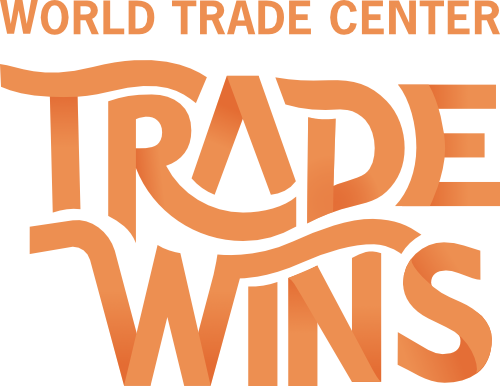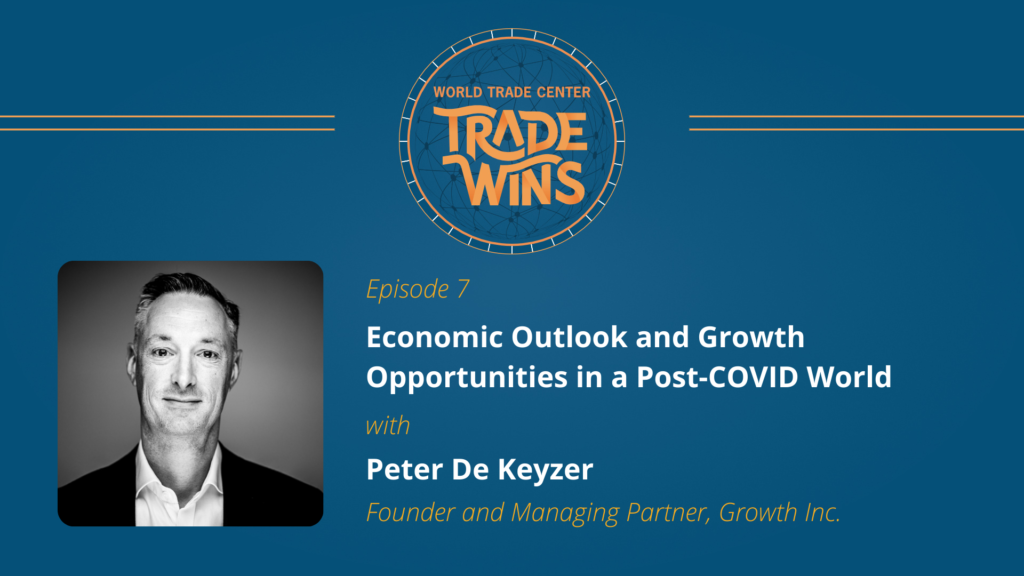Robin van Puyenbroeck 0:08
Welcome to Trade Wins. I am Robin van Puyenbroeck, your host, and I’m excited to present this special series of seven episodes with a set of unique conversations I had with global leaders from the public and private sector during the WTCA 2021 General Assembly. The conversations happened during the last week of April with a live virtual audience from 70 countries. This gave me the opportunity to also poll a global audience on some very pertinent questions. Poll results provided not only further food for thought but also calls to action. Now let’s get started.
An early good morning from New York and welcome to the WTCA 2021 General Assembly and Business Week which for the first time is fully virtual. We’re gathering here with over 1,000 participants from more than 70 countries. Our first keynote for today, live from Antwerp, Belgium is Peter De Keyzer, founder and managing partner of Growth, Inc and also former chief economist of BNP Paribas Fortis. He is an avid writer of editorials and books alike on creating growth and making sense of it all. He is, therefore, someone whose opinion is listened to in political circles. Peter will provide us with an economic outlook and his views on growth opportunities in a post-COVID world. Peter, welcome, thank you so much for joining us today. I’m handing it over right to you.
Peter De Keyzer 1:37
Thank you very much for the introduction. Also, thank you very much to everybody joining. I was asked to first give a brief introduction about the economic outlook as I see it and what’s going on. Robin will then ask me a couple of questions. I have five main points that I would like to tackle during the first bit of my presentation. First of all, the economic outlook itself. We should not forget that this is the first pandemic that we are going through since the early 20th century. This is the worst economic shock since the Second World War. Let’s say the scale on which this pandemic has ravaged the world economy is unprecedented. Thanks to huge policy stimulus, concerted action worldwide on behalf of the fiscal authorities, as well as monetary authorities the bleeding has been stemmed to some extent. Central banks have lowered interest rates and bought a lot of assets to provide liquidity. Governments on their part have provided a lot of relief for stricken populations, for companies — tax relief, temporary unemployment programs, stimulus programs, the ones that we’re seeing right now in the U.S. are truly massive. But let’s say the true cost of the shock is still to be expected in the years going forward. There are threats as well as opportunities. Now, if you look at the way that the crisis was tackled, it’s very interesting to see, for example, if you look at the forecasts by the International Monetary Fund, their tables from a couple of weeks ago, they had their forecast for 2021-2022, but also the 2020 figures. It’s very instructive to look at those. If you look at 2020 figures as far as growth is concerned worldwide, every economy had a contraction of its economic activity — whether you go to Brazil, Spain, France, the U.S. — there was a contraction everywhere apart from one exception and that was China. China is the only economy worldwide that still had positive growth in 2020. Now, of course, this says a lot about the way they tackled the pandemic. We know that the virus probably originated in China and that China might have been relatively secretive about its origins, in the beginning, costing us a lot of time in battling the pandemic in the rest of the world. If you look at the problem that policymakers face, it is that there was what we call an impossible trilemma. You had to choose between economy, freedom and health. Now, there’s this other trilemma that a lot of you will probably know which is fast, good, and cheap. It’s a trilemma that is known in marketing. If you want something fast and good, it won’t be cheap. If you want something fast and cheap, it won’t be good. If you want something good and cheap, it won’t be fast. The same goes for tackling the pandemic. You had to choose between freedom, the economy and the health of your population. Let’s say China chose in favor of its economy and health, which meant they wanted to get the pandemic under control as fast as possible. They wanted to safeguard the economy as well as they could, but this went at the expense of freedom. There’s no freedom, no privacy, no freedom of movement. And so that allowed the Chinese to get the pandemic under control quite fast. Now, this is, of course, an approach that wouldn’t work in most western countries. But let’s say the flip side of the medal is that because they chose to restrict freedom and to only go for the economy and health, they were about the first ones to get the pandemic under control. Next look at a country like the U.S. or Sweden. There the choice was for the economy as well as freedom. The wearing of mouth masks is still compulsory in Sweden and the U.S. A lot of states tried to keep their economies open for as long as possible. Choosing from a lot of freedom, they tried to keep the economy open, but this went at the expense of health. The health outcomes were worse in these countries. Then you have Europe in which we said we want to fight the pandemic and keep people’s freedoms intact as much as possible. So freedom of movement, no big tracking devices, no scans when you cross borders, etc. But of course, that went at the expense of the economy. So those were the choices that had to be made. Now from a PR perspective, the fact that China was one of the only economies in the world that had positive growth whereas the rest was in contraction, is a huge PR boost. Now, that is what has happened.
Peter De Keyzer 6:09
As far as the recovery is concerned, we see that in the U.S., the stimulus plans are massive. A lot of other countries don’t have the same room for maneuver. In Europe, we are doing some stimulus, but it’s not to the extent that we’re seeing in the U.S. The good thing is that the stimulus program in the U.S. is so big that we will see spillover to the rest of the world. The fact that the U.S. starts ordering windmills, infrastructure spending, etc., etc., will have a beneficial impact on the rest of the world. Now, one clear danger that I see and that’s especially in Europe from the current pandemic is zombification of the economy. The same might apply to the U.S. as well in that, you see, this was the worst year for the economy in a couple of generations. Yet, bankruptcies fell in 2020 because governments gave stimulus and because there was a delay or a grace period when it comes to foreclosures. The risk that you’re running is that you have insolvent companies which are being kept alive by government or central bank liquidity. You risk ending up in a situation in which you have companies with a dead business model. Think airlines, cruise operators, hotels, cafes, restaurants, etc. They are still alive. I mean, like the monster Frankenstein. The thing was dead in itself, but if you pour enough stimulants into it, it walks around, but it doesn’t change the fact that it is dead. That’s a clear issue going forward. Japan knows what it is to have a zombified economy after the crisis in the early 1990s. That is a crucial one to be looking out for.
Peter De Keyzer 7:59
Then what you see right now is that the world is at a crossroads. Never before has global cooperation been more necessary and more needed than today. You see that when it comes to vaccination, when it comes to travel restrictions, when it comes to making sure that we don’t have new variations of the virus ending up in all places of the world. We need global cooperation more than ever. But what we’re seeing is vaccine nationalism. We’re seeing countries choosing their own vaccine, countries not cooperating with each other, emerging markets/developing markets being left to their own devices. This is going to cost us dearly in the future. We need cooperation, yet at the same point in time, we see more nationalism emerging. It’s too early to tell which of the two will win. Finally, what you’re also seeing is increased tensions East/West. Look at the tensions between China and the U.S. Look at the tensions between Russia and the U.S. and parts of the West. So that is maybe a threat potentially in the short to medium run. I also see a lot of opportunities. We’ve seen an enormous boost of digitalization over the past year out of necessity because the pandemic forced us to use digital much more than we did. If we keep on pursuing this, the world economy could become much stronger, with increased earnings potential because of that. Finally, let’s say climate change, something for which we need coordination and cooperation internationally. Climate change has become much more prominent on the agenda. Governments need the pretext to spend right now; we need stimulus. We need to get the economy going again. Climate change and global cooperation could be the ideal way of getting out of this crisis. So summarizing, we’ve had crises in the past and usually, mankind has surmounted these — the 1930s, the Great Depression. We had Roosevelt’s New Deal. After the Second World War, we had the Marshall program in Europe and reconstruction in Europe. We had the fall of the Berlin Wall which led to the acquisition of Central Eastern Europe to the rest of the European Union. This is our big moment in which we have to act. I think that having such a big crisis, having the opportunity to do something for a longer-term goal, climate change, I think that is, for me, the way forward that should yield us sustainable growth for the years to come.
Robin van Puyenbroeck 10:35
Thank you, Peter. So much food for thought. We will dig into all of this deeper. A lot of the issues that you raised we talked about yesterday as well. For questions, please put them in the Q&A box. We will also have a poll up so please make sure to vote. Here are three questions. One is, “How confident are you in a positive economic outlook for 2021?” The second question is, “Should businesses take a more active role as changemakers in society?” The third question we just added coming off what you were saying, Peter, is about this trilemma. “Make a choice – economy, freedom or health.” I will be very interested to see what the audience has to say about that. Now the first question here, Peter. You mentioned growth in China and you mentioned the zombification in Europe and these enormous Frankenstein companies. The elephant in the room you also alluded to is the trade tension. At the core of that is, of course, the U.S./China relationship which is, let’s say, frosty at best right now. It is undermining global stability. So where does the European Union, the EU come in all of this? As a major trading bloc can it also act politically? Do you still see the EU as a power broker or just being sidelined by the U.S./China economic and geopolitical duopoly?
Peter De Keyzer 11:55
Europe is one of the most open economies in the world. If you look at Europe as one big economy, there’s hardly a single economy in the world that is more open, which is more dependent on exports and imports which means it’s in our self-interest to make sure the world stays open. Now in the past, let’s say the past 20-25 years, we’ve lived in the era of globalization. It was normal to open up your borders, to have as low of tariffs as possible, to have as many countries as possible in the WTO, etc., etc. But you’re seeing this nationalism coming to the fore. I have a feeling that we’re going towards maybe what we could call a “New Cold War” in which your ideological affiliation determines who you trade with. We traded with China, we traded with all kinds of regimes. We didn’t trade with the Soviet Union in the 70s and the 80s. And so right now, you see this increased tension between the U.S. and China, a bit less between Europe and China. It could transform itself into, let’s say, a “New Cold War” in which we only trade with countries who also believe in freedom of speech, who also believe in civil rights, etc., etc., automatically making two blocs. So Europe could be a broker as far as that’s concerned to make sure it doesn’t become a world in which everybody retreats on its own island. It’s in Europe’s own best interest to make sure that it doesn’t come that far.
Robin van Puyenbroeck 13:26
We see these two value blocs rising and also all over the world countries are sort of taking sides if you like. So we’ve discussed trade loss and yesterday focused on the international trade system. You mentioned the WTO. So is the current trade infrastructure adequate to deal with today’s challenges?
Peter De Keyzer 13:47
Not really, I think because what you see is a first glimpse of, let’s say, the value-oriented trade policy in Europe’s idea that has been floated several times and probably become reality in having a border CO2 tax which means we’ve outsourced a lot of our industries to, let’s say, developing markets or emerging markets. So we lose a lot of CO2 emissions in Europe because we don’t have these polluting factories anymore. But, let’s say, now we import the production from places where maybe regard for CO2 emissions is even less. On a planetary scale, we might have even emitted more CO2. What Europe is trying to do is say, well, our industry has invested so much in CO2 reduction, yet it is getting competition from companies from the other side of the world that don’t look at its CO2 at all. So Europe says we want to compensate for this. If you are importing from China towards Europe, we’ll slap a CO2 tax on you. You see this kind of, let’s say, soft protectionism, climate change-flavored protectionism. I don’t think that the WTO or any international trading system is really taking this into account enough. This will be the main challenge because you want your borders to stay open as much as possible, yet you also want to be able to tackle long-term climate challenges. I think both will have to be reconciled.
Robin van Puyenbroeck 15:17
Yeah, so you’re also a big advocate for the private sector. How do you see companies as agents of change versus governments?
Peter De Keyzer 15:25
Well, the reason why we see companies as the main agents of change is that you see that politics has run into several obstacles. In the United States, you see polarization. In many countries you see strongmen or authoritarian movements rising. In Europe, we’re good at making plans, but a bit less good at executing them. Why we believe that companies are the true agents of change is that they have a lot of stakeholders. They’re quite close to the stakeholders — whether it’s consumers, shareholders, clients, employees, civil society. And so companies are very well in touch with what’s happening on a societal level. Companies can make up their mind much more quickly than politics can and once they’ve decided on something, they can implement it much faster and it affects a much larger amount of the population. Just imagine that McDonalds or Burger King said, “Okay, we’re going to scrap all supersize menus,” whatever, just giving an example. If they do that and say this is our contribution to battling the global obesity pandemic, they will have an effect tomorrow on the lives of millions of people. Just imagine — you would have to assemble a global, political, or governance alternative to achieve the same end. A company is a true agent of change. And one important other reason is, companies have eternal life. A company in a going concern mode has to assume it’ll still be around in 10/20/30/40 years. A well-led company should have an idea of how they’re going to contribute to this world of 10/20/30 years out. That’s the main difference, as far as I’m concerned. I think companies know much better. They face the scrutiny of clients and consumers, they face the scrutiny of suppliers, politics, and civil society. They’re much more in tune with what society wants than maybe a politician who gets elected every four or five years, and is less able to push through big reforms.
Robin van Puyenbroeck 17:38
I think it’s an extremely interesting proposition here and I want to take that to your most recent writing where you do mention, we talked about this before you came on the program here, that “power is silver and influence is gold.” Can you elaborate a little more on your thinking here?
Peter De Keyzer 17:58
Yeah, so the whole idea is that if you want to change the world, there are three ways of trying to achieve that. I mean, one is violence, the other one is power and the last one is influence. Violence is always temporary and sooner or later your adversary will use it against you and then you’re on the losing end, so that’s a zero-sum game. Power is something that is attributed to you and you get it. I mean, you’re an elected official, you’re a secretary of state, you’re a president, whatever, but it’s temporary. Influence has a legacy that is much, much longer. Influence is the power of an idea. You know that in the movie Inception, the character who was played by Leonardo DiCaprio says, “An idea is the world’s most infectious disease.” Once you plant it in somebody’s head, it spreads. Ideas build cities; ideas change societies and change the world. Influence is all about ideas. So the thing I write in the dedication to everybody whom I give the book to is tell your story, gain influence, change the world. You see that somebody like Jesus Christ or Muhammad or whoever still has influence today centuries after death whereas recent systems that were in power, Soviet Union, etc., have no influence whatsoever. You often see that they don’t combine. Al Gore had a lot of power when he was vice president, but he had little influence. It was only when he didn’t have power anymore that he became influential with concern to the climate. I do think that influence is the way for companies to show that they’re the agents of change.
Robin van Puyenbroeck 19:37
It’s still all about the power of an idea. I agree with that. We’ve all been living through this COVID pandemic for the past year and I’m just curious to get your take on where this whole crisis and all the changes, the digitalization we’re seeing, where will this cause a more lasting and disruptive impact on society, mainly on how we live our lives, how we conduct our business? What do you think will fundamentally change after this year?
Peter De Keyzer 20:02
What I do think will be a very important one is everything which has to do with the gathering of large amounts of people in certain places. That will take some time to come back, I think that’s for sure. This is something that’s going to be long-lasting. I think, personally, that the mouth mask will be the last thing that we abandon. This will take some time. Digitalization, business travel, I think that won’t come back anytime soon in its previous form. When you see other people it will be for much more qualitative meetings — it’ll be brainstorming, it will be about creativity. But let’s say just flying to another city to see somebody for an hour to exchange thoughts and knowing you could have done that from a Zoom call or Teams call or whatever, I think that is forever behind us. Finally, I do hope that international cooperation gets a renewed boost from this pandemic because one thing that we learned is that we need global coordination to battle this pandemic. You see, in Europe, it happens pretty well. We have, let’s say, a constant way of negotiating with each other, being at the same table discussing measures, etc., etc. I do think that if we would have to take one thing from this is that we’re all in this together. The pandemic has shown that we cannot fight this alone. We need coordination. We have to take this home for our next big challenge which is climate change. We need globalization, we need cooperation for that as well.
Robin van Puyenbroeck 21:37
Yes, let’s dig a little deeper into climate change. Do you think that the fact that the U.S. now is back at the negotiating table will be a game-changer or are we still in a very hopeless situation here?
Peter De Keyzer 21:50
I do think that’s a game-changer. I mean that as far as Joe Biden is concerned. The impression we have from Europe is that he was under-promising and over-delivering and that’s the fact. If you read the articles in the Financial Times about the green boom or the green investments that are taking place in the U.S., it’s huge. I think for the past couple of years Europe was ahead as far as cleantech is concerned relative to the U.S. But right now, it looks as though the U.S. is quickly overtaking Europe. Europe will have to do its best to make sure that it can keep up. I do think that when it comes to these tensions between East and West as far as trade is concerned, there’s one good thing that could come from it. I made the analogy with the previous Cold War — we didn’t trade with the Soviet Union, we didn’t travel to the Soviet Union, we despised each other’s ideologies. But one good thing that came out of it was the Space Race. The Space Race was, let’s say, an ideological scientific battle between both models to demonstrate who was a superior model. Of course, the U.S. was the first to go to the moon and then the Russians had the first man in space, etc, etc. Right now, let’s assume we get these two blocs again and we get climate technology and cleantech to be how you want to demonstrate that our model is best at tackling this — a free model, liberal, democratic societies in which the best ideas pop up or a centrally-planned, guided economy that can tackle any challenge. I think it would be a good thing to have an increased rivalry and that might get us faster to a CO2 neutral world than anything else.
Robin van Puyenbroeck 23:32
I think it’s a fascinating development. Just going back to your point, Peter, about the role of business here. If you just look at the Space Race and how private companies have taken over launching satellites, the idea now is we’re going to Mars. So I think we probably will see a lot of energy in the development of these grand ideas. We have a lot of other questions from the audience here and I’m trying to go through them. One of the questions is, just briefly, your opinion on countries and all of their financial stimulus programs. Does it make sense and does any country have a good program, a good solid stimulus program without putting the country into a zombie state?
Peter De Keyzer 24:13
I think it’s always difficult to weigh up the short-term benefits and the long-term benefits. In the short term, you want to save everybody. There’s a pandemic, I mean, everything’s going to pieces — support everybody. But longer-term, you only want to support those which are viable in the long run. I mean, some companies were almost bankrupt before the crisis. The question is whether we should keep supporting them at all. I think of airlines. I mean, there’s not a single sector in Europe that has gotten more money than the airlines. You could question yourself whether, from a climate change perspective, pouring billions into that sector is the best choice. There hasn’t been a single, or maybe it was one, airline company in Europe that went bankrupt in a year in which their turnover fell by 95%. That is not normal. Sooner or later, we’ll catch up with that. Anything that has to do with reskilling people, retooling economies, going for green energy, going for sustainability, going for low carbon emissions, going for isolating homes, these kinds of things, protection against floods. Those are the kinds of things we desperately need and those are the kinds of investment we do need. If you want to spend money, make sure it boosts your potential to grow, it boosts your sustainable potential to grow. That would be, for me, the yardstick by which to measure any stimulus program.
Robin van Puyenbroeck 25:26
Yes. On stimulus, we have a lot of questions here about money supply and, of course, inflation. That’s the $1 million question. Do you see fiscal policies tightening next year and thereafter?
Peter De Keyzer 25:38
Absolutely not. So I do think that there’s going to be a stimulus for a very long time to come. As far as central banks are concerned, I don’t expect any restrictions or any tightening anytime soon. The reason is that central banks have painted themselves into a corner. By lowering interest rates all the time, debt has been increasing all the time. If you look, there’s one graph that struck me from the International Monetary Fund’s World Economic Outlook which shows debt, public debt from a historical perspective and interest rates. Public debt is at an all-time high. It’s even higher than it was at the end of the Second World War whereas interest rates are at an all-time low. Now, central banks have lowered interest rates telling markets and governments these low interest rates should allow you to reduce your debt. And what have they done? They’ve said, “Debt has become cheaper, let’s take on more debt.” So central banks can’t increase debt because then everybody who would be indebted would go bankrupt. Interest rates will stay extremely low for the foreseeable future. We run the risk of seeing the zombification of the economy, but if we’re smart, we use these low interest rates, the fact that money is for free, to make investments that are worthwhile to boost our growth potential in the long run. Let’s not forget that a lot of people in the hospitality sector will lose their jobs — restaurants, hotels, events, etc., etc. They should be retrained, reskilled for other sectors. My advice would be, don’t try to protect every job, but do protect every person behind the job and that’s a great difference.
Robin van Puyenbroeck 27:10
Well said. Thank you, Peter. I just want to go back to our poll and sort of see what we’ve got back here. Question one was, “How confident are you in a positive economic outlook for this year?” About 70% is very confident, 65% is right in the middle, somewhat, and 17% is not confident at all. There seems to be moderate confidence in the outlook for this year. Here, I think, on your triangle question, which one would you choose as the most important, an overwhelming 82% chose health, 7% economy, and 10% freedom. I think it’s still interesting that it’s not 100% for health. I think that’s very interesting. And then, “Should business take a more active role as changemakers in society?” I think everybody should read your book, Peter, because 96% say yes. Good, Peter, thank you so much for being here with us today. I greatly appreciate you sharing your perspectives with our global audience. Thank you so much.
I hope you enjoyed this special episode from our General Assembly. Make sure to tune in for all of the episodes. Thank you for listening.






